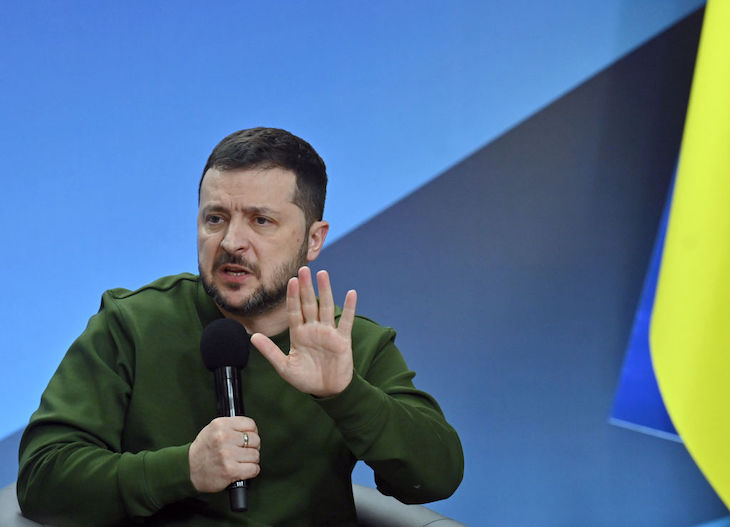Today is Ukraine’s Day of Unity which necessarily had to be marked with an expression of national pride. However, president Volodymyr Zelensky’s decision to issue a decree ‘On the Territories of the Russian Federation Historically Inhabited by Ukrainians’ represented not simply that, but an open political challenge to Moscow, and one which strangely echoed Putin’s rhetoric.
Already a subscriber? Log in
Subscribe for just $2 a week
Try a month of The Spectator Australia absolutely free and without commitment. Not only that but – if you choose to continue – you’ll pay just $2 a week for your first year.
- Unlimited access to spectator.com.au and app
- The weekly edition on the Spectator Australia app
- Spectator podcasts and newsletters
- Full access to spectator.co.uk
Or




















Comments
Don't miss out
Join the conversation with other Spectator Australia readers. Subscribe to leave a comment.
SUBSCRIBEAlready a subscriber? Log in